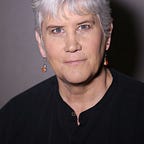European Peace Poetry from Year of The Poet (Vol 75)
Featured in The Year of the Poet March, 2020 Volume 75.
We are in our seventh year as the Inner Child Press Poetry Posse. Reflecting on the last six years gives us a chance to see and enjoy the learning and growth.
• Three poems a month is a lot of work or easy depending on the month, my state of mind, and state of life.
• Poetry like life is unpredictable and full of beauty.
• Some poems flow out already formed perfect just how they manifest while others need to be revised and revised again so that each word says exactly what it means.
• Time management is a good skill for poets to develop―meeting deadlines, honoring the collective’s time―the benefits spilling over into all of life when time and creativity travel hand in hand.
• Some poems flow from passion in torrents while other waltz out thoughtfully composed, gently showing the way life can be sometimes.
• Relationships built on poetry are strong and fragile, gentle and consciousness-raising, soothing and difficult―just as we are.
This month we focus on peace, specifically the 1926 Nobel Peace Prize, a prize awarded after the end of World War I which was called the Great War and before World Wars came with numbers higher than one.
Would that peace and life, would climb steadily always rising upwards but look around and it is not to be―yet. Perhaps in some near or distant future peace will steadily climb to the peaks of every nation and deep into the heart of every person.
In the 1920’s two men, two countries and a world of people hoped for peace when the 1926 winners of the Nobel Peace Prize, Friedensnobelpreis or Prix Nobel de la Paix signed a treaty between France and Germany. French Foreign Minister Aristide Briand and German Foreign Minister Gustav Stresemann yearned for a future with peace, signed their names, committed their hearts and today are remembered in the poetry of the Inner Child Poetry Posse.
Each month, we write and publish, a new volume of The Year of the Poet. This year highlights Nobel Peace prize winners and with each volume we recommit our hearts, minds and pens to peace and abundance for all.
Enjoy this in Peace or Fräd, Fréda, Fridn, Frieden, Pace, Paix, Paz, R̃auha, Smirom, Vrede, and Vride in several European languages.
The Power and Hope of Two
Two men
each born in the late 1800’s
before World War I
one in France
Foreign Minister Aristide Briand
shared the Prix Nobel de la Paix for 1926
with one in Germany
Foreign Minister Gustav Stresemann
both signed an agreement
a hope for reconciliation
in the neutral Swiss town of Locarno
together wished for more compassion
sending the world into an upward spiral
peace, paix, friede
Post-Modern Arrogance
In pre-modern times
less enlightened
we think peace “friede” in German meant
treat others like one’s own kin
respect the otherness of others
Avoid war bred by desire
to adapt the other to one’s own way
with toleration of warrior losers
assimilation till there is no other
otherness associated with imperfection
tolerance and assimilation
march toward conflict
add the primacy of economics
over politics and culture
a long bourgeois century
full of enlightenment and modernity’s dark side
did not bring a system of perpetual peace
one peace designed and controlled
precise linear universalist
reductionist assumptions
aimed at a paradise on earth
the one truth
the one and perpetual peace
the one world society
the one civilizing process
carries in it the seed of self-reproduction
and a structure of violence
How is one to treat others like members of one’s own kin
if the difference among kin has long been eliminated
How is one to find peace
a state where each culture blooms
in its own unique way
and we all respect
European Gendered Feelings of Peace
“Se sentir calme” or to feel at peace in French
may not affect the genders equally
what causes the feminine “paix” peace and “tranquillité” or calm
may not be the same for him and her and they
what causes the masculine “calme” to calm?
as each one “keep one’s peace”
“Garder le silence” literally guarding silence
or “être parfaitement sereine” literally perfectly calm or
to be at peace with the world
as they say “paix sur la terre!”
may peace prevail in the world
or the feminine mother earth
In Romance languages
“pas” “paix” “pace”
the Greek “eirī́nī” or “ειρήνη”
peace is feminine
In German “friede” or “frieden” and
“fridden” or “fridd” in Luxembourgish
peace is masculine
Originally published in The Year of The Poet (Vol 75) at http://www.innerchildpress.com/the-year-of-the-poet.php on March 1, 2020.
